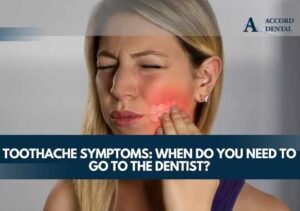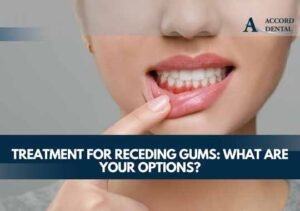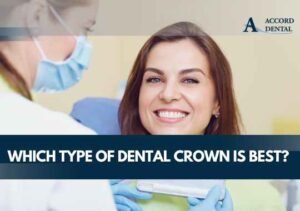Modern dental care has transformed the way we maintain oral health, offering innovative solutions to preserve the alignment and aesthetics of our teeth. Among these, permanent retainers have gained popularity for their ability to ensure lasting results after orthodontic treatments like braces or Invisalign. But are they the right option for you? This detailed guide delves into every aspect of permanent retainers, helping you make an informed decision.
What Are Permanent Retainers?
A permanent retainer, also referred to as a fixed retainer, is a thin wire that is bonded to the back surface of your teeth. Unlike removable retainers, which need to be worn and taken out as required, permanent retainers remain fixed in place.
Purpose and Functionality
These retainers are designed to hold your teeth in their corrected positions after orthodontic treatments, such as braces or clear aligners. Teeth naturally tend to shift over time due to daily wear, natural movement, or even jaw growth. Permanent retainers provide a durable solution by continuously maintaining alignment and minimizing the risk of relapse.
Common Usage
Permanent retainers are especially effective for the lower front teeth, which are more prone to crowding. Orthodontists often recommend them for individuals who are at a higher risk of their teeth shifting post-treatment.
Benefits of Permanent Retainers
Permanent retainers come with a variety of advantages that make them a preferred choice for many individuals. Let’s explore these in depth.
1. Consistent Teeth Alignment
One of the most significant benefits is their ability to consistently maintain tooth alignment without requiring conscious effort. Unlike removable retainers that depend on the user’s compliance, permanent retainers work 24/7, ensuring that teeth stay in their proper positions.
2. Convenience for Daily Life
Busy schedules or forgetfulness can lead to lapses in wearing removable retainers. A permanent retainer eliminates this concern as it is always in place. It’s a worry-free solution for those who might struggle with remembering to use or store a removable retainer properly.
3. Durability and Longevity
Permanent retainers are crafted from high-quality, sturdy materials such as stainless steel or a titanium composite, making them resistant to the wear and tear of daily activities like eating and speaking. When properly maintained, they can last for years, reducing the need for frequent replacements.
4. Discreet and Aesthetic
Because permanent retainers are bonded to the back of the teeth, they are virtually invisible to others. This makes them an ideal choice for individuals who want a subtle method to maintain their smile without visible orthodontic devices.
Drawbacks to Consider
While permanent retainers are advantageous, they also have potential drawbacks that should be carefully evaluated.
1. Oral Hygiene Challenges
Maintaining good oral hygiene with a permanent retainer requires extra effort. The wire creates small spaces where food particles and plaque can accumulate, increasing the risk of cavities and gum disease if not cleaned thoroughly.
Solutions:
- Use orthodontic floss threaders or a water flosser to clean between the retainer and teeth.
- Schedule regular professional cleanings to prevent plaque buildup.
2. Potential for Damage
Although durable, permanent retainers can occasionally become damaged or detached. Chewing hard foods, grinding teeth, or accidental impact can weaken the bonding, necessitating repairs. Visiting an orthodontist promptly for maintenance is crucial to avoid further misalignment.
3. Initial Adjustment Period
Some individuals may experience discomfort or irritation when the retainer is first installed. While most people adapt within a few days, it’s important to communicate with your dentist if discomfort persists.
Who Should Consider Permanent Retainers?
Permanent retainers are not suitable for everyone but are particularly beneficial for certain individuals.
Patients Post-Orthodontic Treatment
If you’ve invested time and money into braces or Invisalign, permanent retainers can help safeguard your results. They ensure the teeth don’t revert to their previous positions.
Individuals Prone to Teeth Shifting
Certain people have teeth that are naturally prone to movement, whether due to genetic factors, oral habits, or the structure of their jaw. A permanent retainer can provide continuous stabilization.
Busy Professionals and Students
For those with packed schedules or who may forget to wear a removable retainer, a permanent option ensures consistent results without requiring daily attention.
Types of Permanent Retainers
Permanent retainers come in two primary types, each designed to cater to specific needs and preferences.
1. Bonded Lingual Retainers
These retainers consist of a single wire bonded to the inner surfaces of the front teeth using a dental adhesive. They are most commonly used for lower front teeth but can also be applied to upper teeth in some cases.
Advantages:
- Simple design for effective alignment maintenance.
- Nearly invisible to others.
Disadvantages:
- Can make cleaning more challenging, requiring specialized tools.
2. Custom-Fit Retainers
Custom-fit retainers are designed to match the unique contours of your teeth. They offer a snug fit and are crafted for maximum comfort and stability.
Advantages:
- Highly personalized for better comfort.
- May be less prone to irritation or discomfort.
Disadvantages:
- Slightly more expensive due to customization.
Maintenance Tips for Permanent Retainers
To ensure the longevity of your permanent retainer and overall oral health, consider these maintenance practices:
1. Regular Brushing and Flossing
Brush twice daily using a soft-bristled toothbrush. Flossing is equally important, and using floss threaders or orthodontic floss can help clean around the wire effectively.
2. Routine Dental Checkups
Regular dental visits allow your dentist to inspect the retainer for signs of wear, ensure it’s securely bonded, and address any plaque buildup.
3. Avoid Hard or Sticky Foods
Biting down on hard candies, ice, or sticky foods like caramel can damage or loosen the retainer.
4. Use a Water Flosser
A water flosser is a helpful tool for cleaning hard-to-reach areas around the retainer, especially for those who struggle with traditional flossing techniques.
Costs of Permanent Retainers
The cost of permanent retainers depends on factors such as material, the complexity of your case, and geographical location. Typically, a single retainer costs between $250 and $500. Additional expenses may arise if repairs or replacements are needed.
Permanent Retainers vs. Removable Retainers
When deciding how to maintain your perfect smile after orthodontic treatment, understanding the differences between permanent and removable retainers is essential. Each type has distinct benefits and challenges that cater to different lifestyles and preferences.
Permanent Retainers
Permanent retainers are fixed wires bonded to the back of your teeth, typically used to preserve alignment after braces or Invisalign. These retainers stay in place 24/7, providing constant support without requiring daily adjustments. They are virtually invisible from the front, making them a discreet option. However, cleaning around them can be tricky, as the fixed wire may trap food particles and plaque. Special tools like floss threaders or water flossers are often needed to maintain proper oral hygiene.
Removable Retainers
Removable retainers are orthodontic devices that you can take out as needed. They come in two primary types: Hawley retainers, made of acrylic and metal wires, and clear plastic retainers, crafted from transparent material. Removable retainers are easier to clean since they can be taken out during brushing and flossing. However, they require discipline to wear consistently, as neglecting them can cause teeth to shift over time. Their flexibility makes them convenient for eating or special occasions, but the effort to remember wearing them regularly is essential.
Key Differences Between Permanent and Removable Retainers
Maintenance and Oral Hygiene
Permanent retainers require extra care to clean around the fixed wire, whereas removable retainers can be taken out, allowing for thorough cleaning. While permanent retainers pose a risk of plaque buildup, removable ones need regular cleaning to avoid discoloration or odor.
Visibility and Aesthetics
Permanent retainers are completely invisible from the front, as they are bonded to the back of the teeth. Removable retainers vary in visibility, with clear retainers being nearly invisible and Hawley retainers having a visible metal wire.
Convenience and Comfort
Permanent retainers eliminate the need to remember to wear them, making them a hassle-free solution for busy individuals. Removable retainers, while flexible, require diligence in use and care. Both types may take some time to adjust to in terms of comfort.
Which Retainer Should You Choose?
The decision ultimately depends on your lifestyle, personal preferences, and ability to maintain good oral hygiene. Permanent retainers are ideal for those seeking a long-term solution with minimal effort but require careful cleaning. Removable retainers are better for individuals who prioritize flexibility and can commit to wearing them consistently. Consulting with your orthodontist can help determine which option best suits your needs and ensures the longevity of your orthodontic results.
Alternatives to Permanent Retainers
If permanent retainers don’t suit your needs, consider these alternatives:
Removable Retainers
While they require user compliance, removable retainers are easier to clean and maintain.
Clear Aligners as Retainers
Some clear aligners double as retainers and can be a flexible alternative to fixed options.
Conclusion
Permanent retainers are a reliable and discreet way to maintain your orthodontic results. However, they require consistent care and regular dental visits to prevent complications. Consulting a qualified orthodontist is the best way to determine if a permanent retainer suits your lifestyle and oral health needs.
For expert advice and dental care, visit Accord Dental, your trusted Dentist in Grafton, MA. Their team specializes in personalized orthodontic solutions to ensure your smile stays perfect for years to come.





